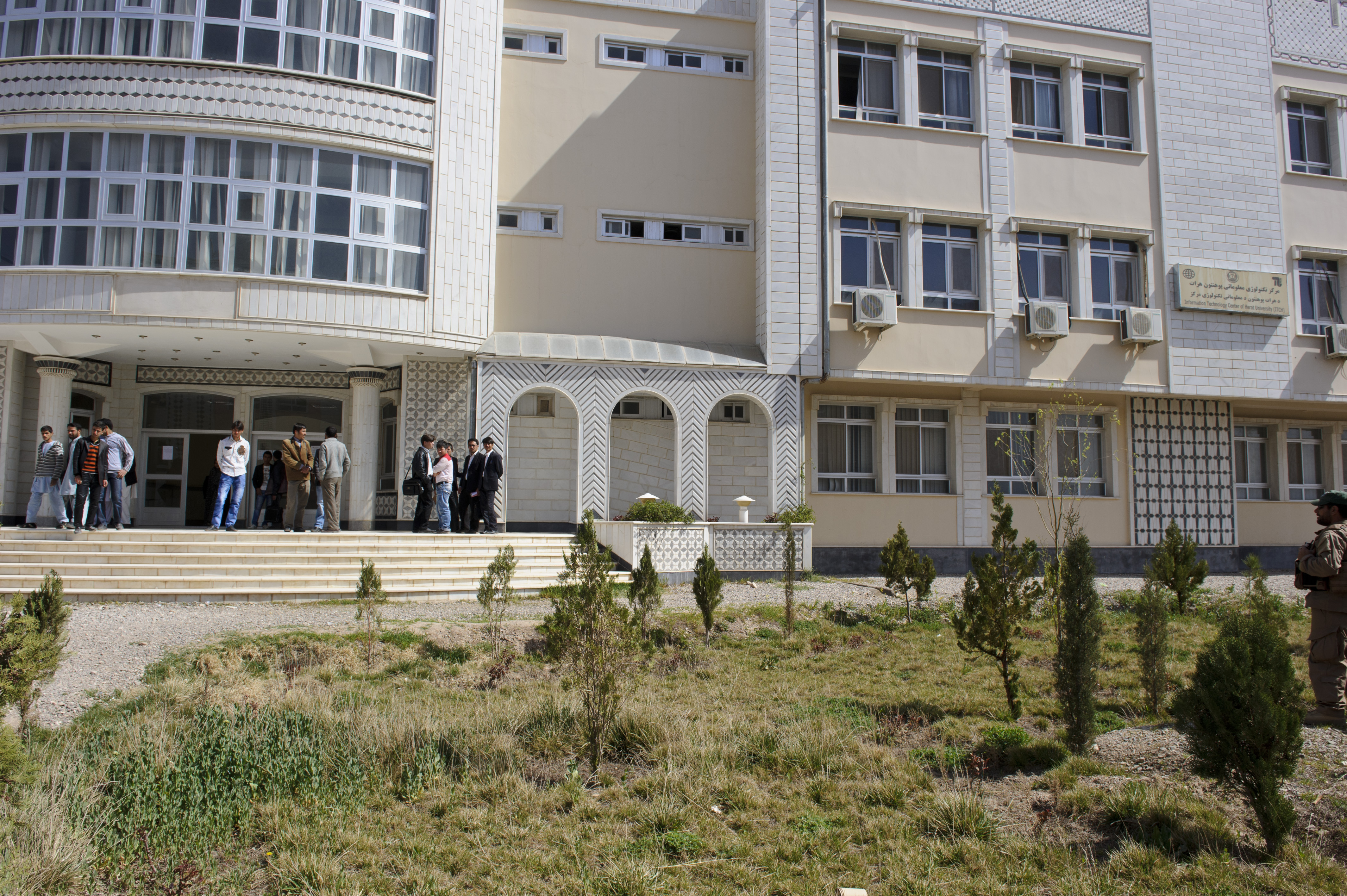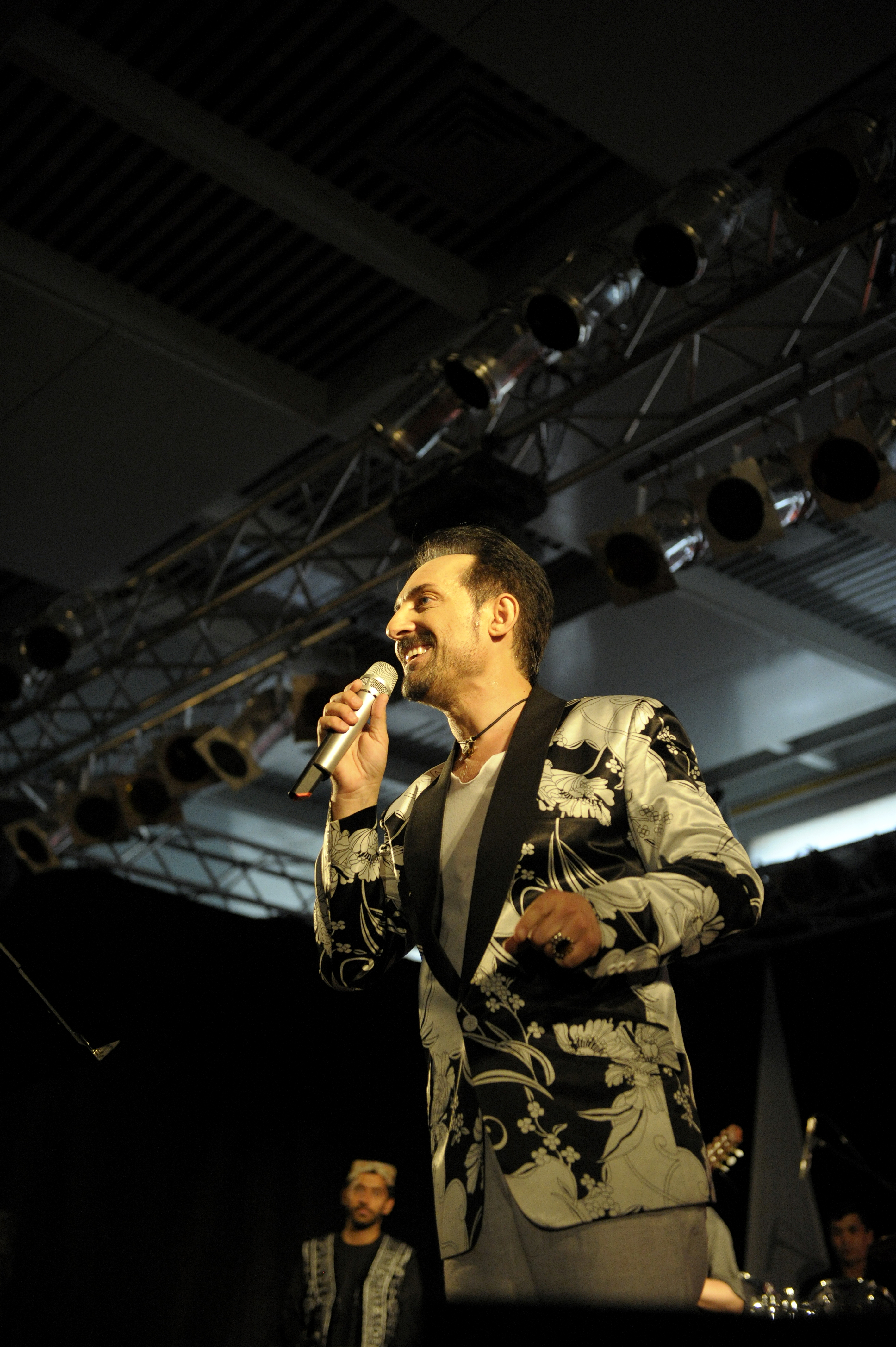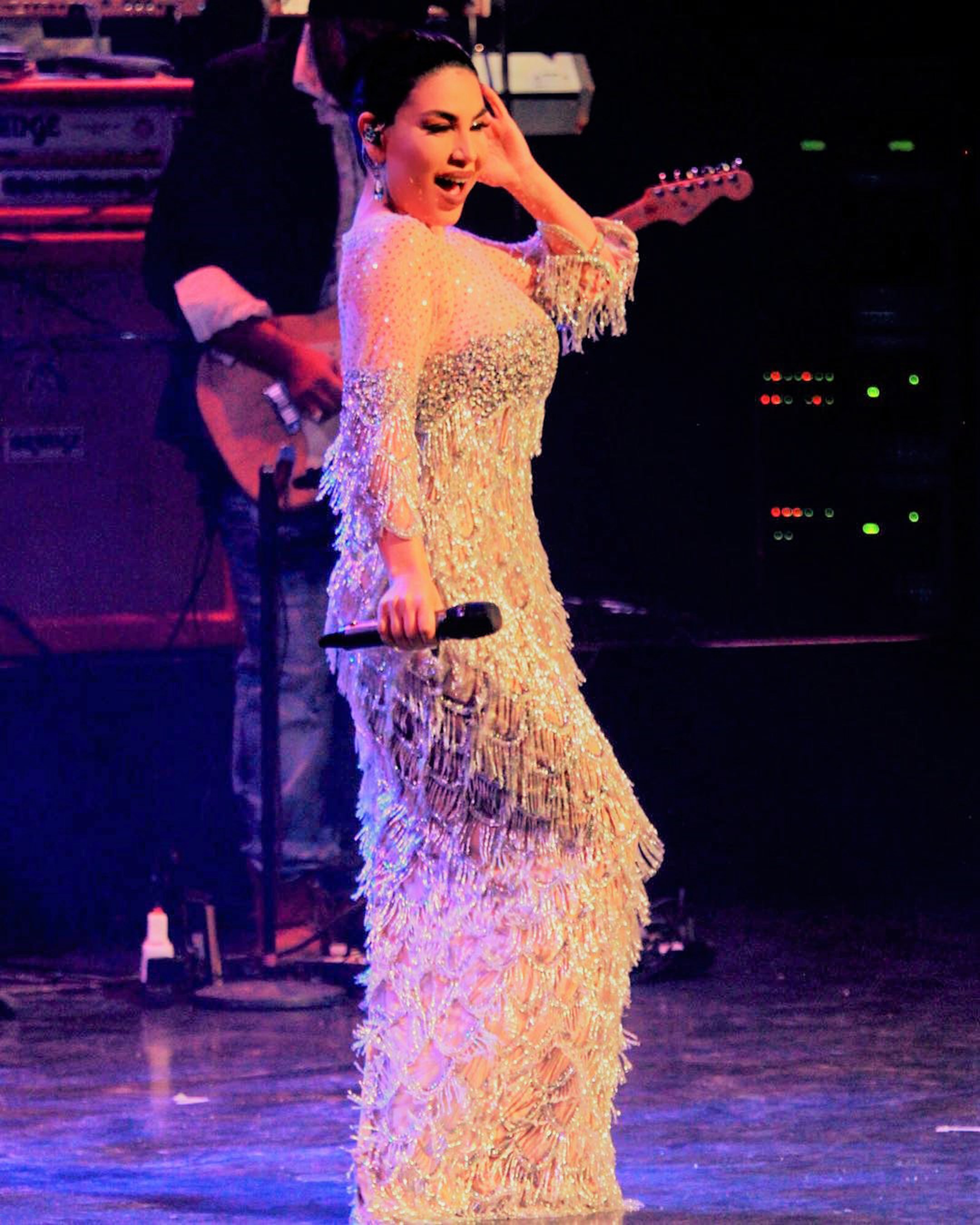|
Laleh Osmany
Laleh Osmany ( ps, لیلے عثمانی; born 1992) is a women's rights activist from Afghanistan, who founded the social media #WhereIsMyName campaign which opposes the tradition that women's names were not used publicly in Afghanistan. For her work she was recognised on the BBC's 100 Women Awards in 2020. Biography Osmany was born in 1992 in Afghanistan; she later studied Islamic Law at Herat University. In 2017 she co-founded the #WhereIsMyName social media campaign with Tahmineh Rashiq. The campaign was set up in protest about the fact in Afghanistan, women traditionally had no right for their names be used in public. This custom meant that women's names did not appear on official documents such as birth or death certificates, and not even on her tombstone. Mary Akrami, the chair of the Afghanistan's Women Network, described the news of the change in the law as a “positive step toward establishing women’s identity". Fawzia Koofi, an Afghan former MP and women's rig ... [...More Info...] [...Related Items...] OR: [Wikipedia] [Google] [Baidu] |
Herat University
Herat University (HU; fa, ; ps, ) is a public university located in Herat, the capital of Herat Province, in western Afghanistan. It was inaugurated in 1988, beginning with a faculty of Literature and Humanities. The first President was Abubakr Rashed. The university has 14 faculties and 45 departments. The most popular field of study is Education/Pedagogy and around one-third of the university's 10,500 students are women. In recent years, Herat University could manage and maintained relations of cooperation with a number of foreign Universities such as United States, Germany, Italy, Thailand, Slovakia, Iran, India and Indonesia. As a result of this cooperation teaching curriculum in faculties of Computer Science, Science, Engineering, Economics, Agriculture, Medicine, Religious and Islamic and Journalism and mass communication has been partial or totally amended and syllabi and textbooks are prepared as well. Achievements Herat University has graduated about 6039 specialist ... [...More Info...] [...Related Items...] OR: [Wikipedia] [Google] [Baidu] |
Afghanistan
Afghanistan, officially the Islamic Emirate of Afghanistan,; prs, امارت اسلامی افغانستان is a landlocked country located at the crossroads of Central Asia and South Asia. Referred to as the Heart of Asia, it is bordered by Pakistan to the Durand Line, east and south, Iran to the Afghanistan–Iran border, west, Turkmenistan to the Afghanistan–Turkmenistan border, northwest, Uzbekistan to the Afghanistan–Uzbekistan border, north, Tajikistan to the Afghanistan–Tajikistan border, northeast, and China to the Afghanistan–China border, northeast and east. Occupying of land, the country is predominantly mountainous with plains Afghan Turkestan, in the north and Sistan Basin, the southwest, which are separated by the Hindu Kush mountain range. , Demographics of Afghanistan, its population is 40.2 million (officially estimated to be 32.9 million), composed mostly of ethnic Pashtuns, Tajiks, Hazaras, and Uzbeks. Kabul is the country's largest city and ser ... [...More Info...] [...Related Items...] OR: [Wikipedia] [Google] [Baidu] |
100 Women (BBC)
''100 Women'' is a BBC multi-format series established in 2013. The annual series examines the role of women in the 21st century and has included events in London and Mexico. Announcement of the list is the start of an international "BBC's women season", lasting three weeks including broadcast, online reports, debates and journalism on the topic of women. Women around the world are encouraged to participate via Twitter and comment on the list, as well as on the interviews and debates that follow release of the list. History After the 2012 Delhi gang rape, then BBC Controller Liliane Landor, BBC editor Fiona Crack and other journalists, were inspired to create a series focusing on the issues and achievements of women in society today. They felt that many of the issues women faced were not getting in-depth coverage, and in March 2013 a "flood of feedback from female listeners" was received by the BBC to the effect that the corporation should provide more "content from and about ... [...More Info...] [...Related Items...] OR: [Wikipedia] [Google] [Baidu] |
Tahmineh Rashiq
use both this parameter and , birth_date to display the person's date of birth, date of death, and age at death) --> , death_place = Kingdom of Samangan , body_discovered = , resting_place = , resting_place_coordinates = , burial_place = , burial_coordinates = , monuments = , nationality = , other_names = , siglum = , citizenship = , education = , alma_mater = , occupation = , years_active = , era = , employer = , organization = , agent = , known_for = Rostam and Sohrab , notable_works = , style = , net_worth = , height = , television = , title = , term = , predecessor = , successor = , party = , movement = , opponents = , boards = , crimin ... [...More Info...] [...Related Items...] OR: [Wikipedia] [Google] [Baidu] |
Mary Akrami
Mary Akrami ( fa, ماری اکرمی; ) is the director of the Afghan Women Skills Development Center. She represented Afghan civil society at the 2001 Bonn Conference. In 2003 the Afghan Women Skills Development Center opened the first women’s shelter in Kabul, Afghanistan. The shelter provides legal advice, literacy classes, psychological counseling, and basic skills training to women who need them. Akrami is on call 24 hours a day at the shelter, and under her leadership some of the women there have denounced their abusers publicly and filed court cases against them, something almost unheard of before. She has faced threats for her work. She received a 2007 |
Fawzia Koofi
Fawzia Koofi ( fa, فوزیه کوفی, ; born in 1975) is an Afghan politician, writer, and women's rights activist. Originally from Badakhshan province, Koofi was recently a member of the Afghan delegation negotiating peace with the Taliban in Doha Qatar. She is an ex Member of Parliament in Kabul and was the Vice President of the National Assembly. Biography Youth and education Koofi's father was a Member of Parliament (MP) for 25 years but died at the end of the first Afghan war (1979–1989), killed by Mujahideen. Born into a polygamous family of seven women, Koofi was first rejected by her parents because of her gender. Her father had married a younger woman and her mother sought to have a son to maintain her husband's affection. The day Koofi was born, she was left out to die in the sun. Koofi managed to persuade her parents to send her to school, making her the only girl in the family to attend. She originally pursued a medical degree but was unable to continue when ... [...More Info...] [...Related Items...] OR: [Wikipedia] [Google] [Baidu] |
Farhad Darya
Farhad Darya (Pashto/Dari: ; born 22 September 1962) is an Afghan singer, composer and music producer who has written and composed songs in various languages. Darya sings in various languages including mostly his native language of Persian/Dari and Pashto but also in Uzbeki, Hindi-Urdu and English. Darya serves as the United Nations Development Program (UNDP) National Goodwill Ambassador for Afghanistan and is involved in numerous charitable organizations, such as ''Music Village'' and others. Early years and personal life Farhad Darya was born in Kabul, Afghanistan to a Nasher branch of the Khilji Pashtun tribe and his family originating from Kunduz Province. He is the grandson of Sher Khan Nashir. He studied Persian literature while attending Kabul University. During this time, he wrote music for other artists under the pseudonym Abr (Cloud), and started playing Afghan and Indian classical music. He later left the university and enrolled in the Afghan Armed Forces. In ... [...More Info...] [...Related Items...] OR: [Wikipedia] [Google] [Baidu] |
Aryana Sayeed
Aryana Sayeed (Dari/Pashto: ) is an Afghan singer, songwriter and TV personality. She sings mostly in Dari but also has many songs in Pashto and some in Uzbek. She is one of Afghanistan's most famous musical artist, performing regularly in concerts and philanthropic festivals within and outside Afghanistan. Sayeed also had hosting roles in musical television shows for the 1TV and TOLO network along with appearances on reality shows. Early life and education Sayeed was born in 1985 in Bamyan, Afghanistan. She left Afghanistan with her parents when she was 8 years old and lived in Peshawar, Pakistan before briefly settling in Switzerland and then in London, England. By the age of 12, she had obtained admission to a music school where she would perform in places with a choir, "Even though it wasn't for long, ..that definitely made me realize what I wanted to become when I grew older". She has said in her interviews. Music career Sayeed's first single, in 2008, was MashAllah. ... [...More Info...] [...Related Items...] OR: [Wikipedia] [Google] [Baidu] |
Maryam Sama
Maryam may refer to: * Maryam Castle, a castle in Kermanshah Province, Iran * Maryam (name), a feminine given name (the Aramaic and Arabic form of Miriam, Mary) * Mary in Islam * Maryam (surah), 19th sura of the Qur'an * Maryam, Iran, a village in East Azerbaijan Province, Iran * 85471 Maryam, an asteroid * ''Maryam'' (1953 film), a 1953 Iranian film * ''Maryam'' (2002 film), a 2002 film about a young Iranian immigrant living in the US during the Iran hostage crisis * ''Maryam'' (TV series), Pakistani drama aired on Geo TV network * Kanaya and Porrim Maryam, characters from the webcomic ''Homestuck'' See also * Mosque Maryam, a large mosque in Chicago, Illinois, and headquarters of the Nation of Islam religious movement * Miriam (other) * Mariam (other) Mariam (also ''Maryam'') is the Aramaic form of the given name Miriam, especially used of Mary mother of Jesus in a number of languages. It may refer to: People named Mariam * Mariam, daughter of Bagrat ... [...More Info...] [...Related Items...] OR: [Wikipedia] [Google] [Baidu] |
Taliban
The Taliban (; ps, طالبان, ṭālibān, lit=students or 'seekers'), which also refers to itself by its state (polity), state name, the Islamic Emirate of Afghanistan, is a Deobandi Islamic fundamentalism, Islamic fundamentalist, militant Islamism, Islamist, Jihadism, jihadist, and Pashtun nationalism, Pashtun nationalist political movement in Afghanistan. It ruled approximately three-quarters of the country Islamic Emirate of Afghanistan (1996–2001), from 1996 to 2001, before being overthrown following the United States invasion of Afghanistan, United States invasion. It Fall of Kabul (2021), recaptured Kabul on 15 August 2021 after nearly 20 years of Taliban insurgency, insurgency, and currently controls all of the country, although its government has Recognition of the Islamic Emirate of Afghanistan, not yet been recognized by any country. The Taliban government has been criticized for restricting human rights in Afghanistan, including the right of women in Afgh ... [...More Info...] [...Related Items...] OR: [Wikipedia] [Google] [Baidu] |
Women In Afghanistan
Women's rights in Afghanistan have oscillated back and forth depending on the time period. After King Amanullah Khan's attempts to modernize the country in the 1920s, women officially gained equality under the 1964 Constitution. However, these rights were taken away in the 1990s through different temporary rulers such as the mujahideen and the Taliban during the Afghan civil war. During the first Taliban regime (1996–2001), women had very little to no freedom, specifically in terms of civil liberties. When the Taliban were removed from power following the 9/11 attacks in the United States, women's rights gradually improved under the presidential Islamic Republic of Afghanistan. Women were ''de jure'' equal to men under the 2004 Constitution. After the Taliban takeover of Afghanistan in August 2021, most teenage girls were again prevented from returning to secondary school education, and women were blocked from working in most sectors outside of health and educatio ... [...More Info...] [...Related Items...] OR: [Wikipedia] [Google] [Baidu] |







